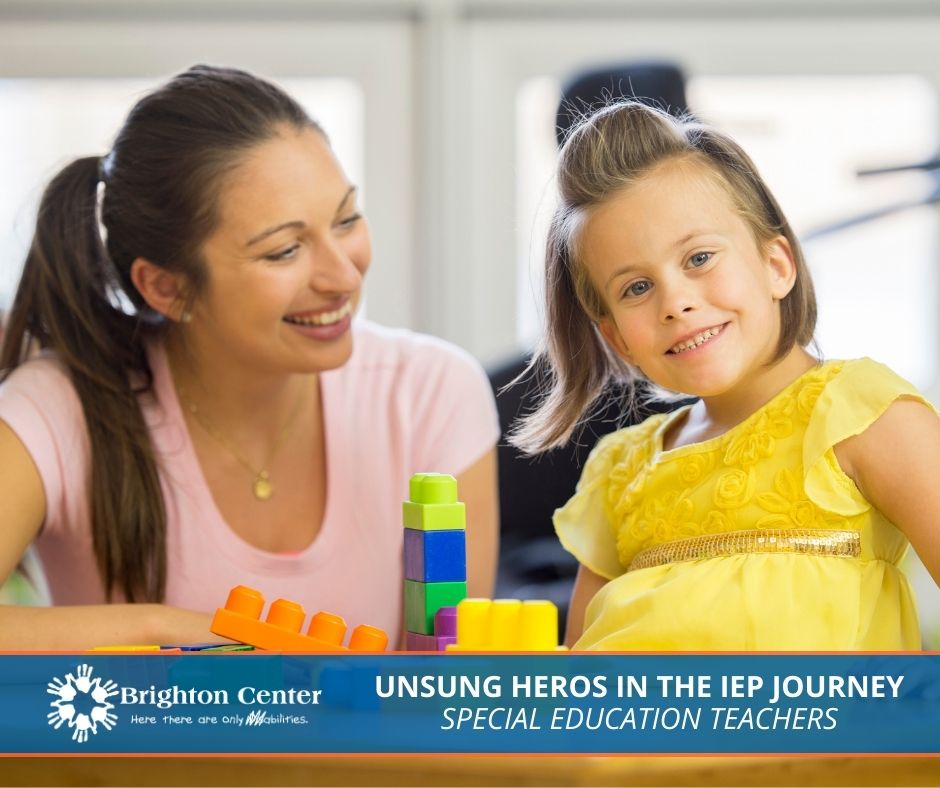In the world of education, Special Education teachers are often unsung heroes. They work tirelessly to ensure that children with disabilities receive the support they need. Despite challenges and occasional lack of accountability in schools, especially in places like Texas, it’s essential to give these dedicated educators the benefit of the doubt. In this blog, we will explore the vital role of Special Education teachers in the implementation of Individualized Education Programs (IEPs). Afterwards, we will explore how they can be invaluable partners in designing your child’s educational programming.
The Crucial Role of Special Education Teachers
Special Education teachers are the heart and soul of inclusive education. They are the ones who bridge the gap between IEPs and actual classroom practices. These educators are pivotal in ensuring students with disabilities have equal access to education and the opportunity to thrive.
For example, imagine a child with autism who requires sensory breaks to stay engaged in learning. It’s the Special Education teacher who understands these unique needs and collaborates with the school to create a supportive classroom environment. Without their expertise and dedication, the IEP would remain a mere document on paper.
 Partners in Designing the IEP
Partners in Designing the IEP
Rather than viewing Special Education teachers as separate from the IEP process, we should see them as integral partners. They bring a wealth of knowledge about teaching strategies, accommodations, and the specific needs of students with disabilities to the table.
Consider the case of a student with dyslexia. The Special Education teacher can offer insights into evidence-based reading interventions that can be incorporated into the IEP. They can also provide valuable input during IEP meetings, helping to tailor goals and strategies to meet the student’s unique requirements.
 Accountability vs. Understanding
Accountability vs. Understanding
In Texas and other places, the lack of accountability in some schools can be disheartening. However, it’s essential to differentiate between systemic issues and the dedication of individual Special Education teachers. They often work in challenging environments, striving to provide the best possible education despite limited resources.
It’s easy to place blame on teachers when things don’t go as planned. However, we must remember that they are navigating complex systems too. Instead of jumping to conclusions, parents and administrators should seek open communication with Special Education teachers to understand the challenges they face.
 Collaboration for Success
Collaboration for Success
Successful IEP implementation is a collaborative effort, and Special Education teachers are key players in this endeavor. When parents, teachers, and administrators work together, the student benefits the most.
Consider a scenario where a student with ADHD struggles with focus. Special Education teachers can collaborate with classroom teachers to implement strategies like visual schedules or frequent breaks. These strategies can significantly impact the student’s ability to learn effectively.
 Supporting Special Education Teachers
Supporting Special Education Teachers
Rather than just expecting accountability from Special Education teachers, it’s essential to offer them support, understanding and access to resources. In Texas and elsewhere, investing in professional development for these educators can enhance their ability to meet students’ diverse needs.
Furthermore, recognizing their efforts through mentorship programs and acknowledging their expertise can boost morale and motivation. When teachers feel valued, they are more likely to go above and beyond to ensure the success of their students.
However, sometimes accountability falls out of the hands of the teachers and parents altogether. Laws that govern special education on a federal and state level are nuanced. Furthermore, they are often overwhelming for parents to understand and apply whenever a difficult situation arises regarding their child’s IEP.
 Brighton Center’s Special Education Support Services (SESS)
Brighton Center’s Special Education Support Services (SESS)
Fortunately, Brighton Center’s Special Education Support Services program (SESS) offers access to special education consultants that can help guide families through the special education process while teaching them the tools and strategies needed to feel empowered as life-long advocates for their children. Through effective collaboration with parents and their child’s educational team, Brighton Center’s Special Education Consultant’s can help facilitate communication between all stakeholders so that true accountability can occur.
By giving these educators the benefit of the doubt, acknowledging their vital role in IEP implementation, fostering collaboration, and reaching out for professional help when needed through organizations like Brighton Center, we can create a more inclusive and supportive learning environment for children with disabilities.
Learn more about Brighton Center’s Special Education Support Services!















